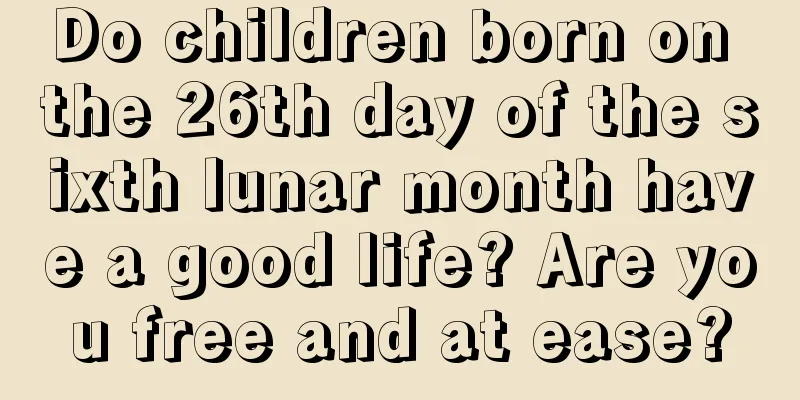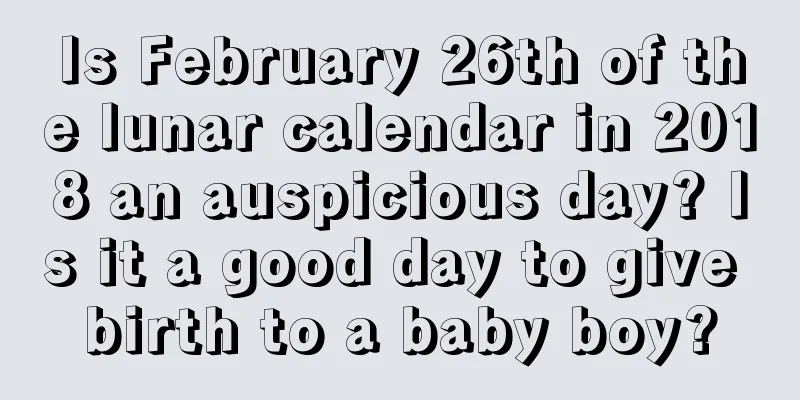The origin and customs of the White Dew solar term, and the importance of naming the 24 solar terms

What are the origins and customs of the White Dew solar term, and what are the rules for naming the 24 solar terms? The White Dew solar term is also known as the August Festival. It is the eighth month of the lunar calendar, the mid-autumn weather. The golden wind is rustling, the jade dew is falling, and autumn has arrived quietly. So what should we pay attention to in August of the lunar calendar in 2019? If you want to know more exciting content, please visit Mr. Shui Mo’s website!The Origin and Customs of the White Dew Solar Termorigin:"Collected Explanations of the 72 Seasonal Changes" says: "In the eighth month... the yin energy gradually becomes heavier, and the dew condenses and turns white." As the weather gradually turns cooler, you will find many dewdrops on the ground and leaves in the early morning. This is because water vapor condenses on them at night, hence the name White Dew. The ancients matched the four seasons with the five elements. Autumn belongs to gold, and gold is white, so white is used to describe autumn dew. custom: King Yu is the legendary flood control hero Dayu, who is called "the God of Waterways" by fishermen on the shores of Taihu Lake. Every year on the eighth day of the first lunar month, Qingming Festival, the seventh day of the seventh lunar month and the White Dew Festival, incense ceremonies to worship King Yu are held here. Among them, the Qingming Festival and the White Dew Festival in spring and autumn are the largest, lasting for a week. The Etiquette of Naming the 24 Solar Terms♥“Li” means the beginning of the season. The Beginning of Spring, the Beginning of Summer, the Beginning of Autumn and the Beginning of Winter are collectively called the "Four Beginnings". In the Gregorian calendar, it usually falls around February 4, May 5, August 7 and November 7 every year. The "Four Beginnings" indicate the beginning of astronomical seasons. From a climatic point of view, it is generally still the previous season. For example, the Yellow River Basin is still in the depths of winter at the beginning of spring.♥“至” means extreme or most. The summer solstice and the winter solstice are collectively called the "two solstices", indicating the extremes of summer and winter. The summer solstice and winter solstice usually fall on June 21 and December 22 of the Gregorian calendar each year. During the summer solstice, the sun is directly above 23.5 degrees north latitude and 90 degrees ecliptic longitude, and the daytime in the Northern Hemisphere is the longest. On the winter solstice, the sun is directly above 23.5 degrees south latitude and 270 degrees ecliptic longitude, and the daytime in the Northern Hemisphere is the shortest. ♥“分” here means to divide equally. The vernal equinox and the autumnal equinox are collectively called the "two equinoxes", indicating that the day and night are equal in length. These two solar terms usually fall around March 20 and September 23 of the Gregorian calendar each year. During the vernal and autumnal equinoxes, the ecliptic and the equatorial plane intersect. At this time, the ecliptic longitudes are 0 degrees and 180 degrees respectively. The sun is directly on the equator, and the day and night are equal. The time of different solar terms in four seasons:Spring: Spring rain brings spring and clear skiesBeginning of Spring: January 3-5; Rain Water: February 18-20; Waking of Insects: March 5-7; Vernal Equinox: March 20-22; Qingming Festival: April 4-6; Grain Rain: April 19-21. Summer: Summer is full of wheat and summer heat is connected Beginning of Summer: May 5-7; Grain in Ear: May 20-27; Grain in Ear: June 5-7; Summer Solstice: June 21-22; Lesser Heat: July 6-8; Greater Heat: July 22-24. Autumn: Autumn dew, cold and frost Beginning of Autumn: August 7-9; End of Heat: August 22-24; White Dew: September 7-9; Autumnal Equinox: September 22-24; Cold Dew: October 8-09; Frost Descent: October 23-24. Winter: Snow, slight and severe cold Beginning of winter: November 7-8; Light snow: November 22-23; Heavy snow: December 6-8; Winter Solstice: December 21-23; Lesser Cold: January 5-7; Greater Cold: January 20-21. The fate at birth is fixed, but people born at the same time will be different later in life because their fortunes change. Making different choices at the same time will naturally lead to different results. Go to the [ Premium Calculation ] below to see when your next great fortune will come. |
>>: What is the exact time of Bailu in 2019? What is the exact time of Bailu in 2019?
Recommend
Introduction to the list of auspicious days for bed installation in May of the lunar calendar in 2021
Speaking of setting up the bed, I believe everyone...
What are the customs and habits of the Beginning of Summer? What does the Beginning of Summer mean?
Introduction: The Beginning of Summer is one of th...
What are the do's and don'ts on the 16th day of the 12th lunar month in 2017?
The twelfth month of the lunar calendar is also k...
Is it good to get married during the Great Cold? How to choose an auspicious date for marriage in 2022?
Although a lot of people get married every day, no...
What are some auspicious names for girls born in the Jingzhe year of 2021 whose five elements lack water?
The first priority after the baby is born is to gi...
Is September 11th of the lunar calendar 2020 a good day? Is it suitable to start renovation?
"Breaking ground" means digging and digg...
Is it good to worship ancestors on November 25, 2020? Check the lucky position of the god of fortune on January 8, 2021
Introduction: According to traditional folk custom...
Can't a funeral be held on the fifth day of the fourth lunar month in 2018? What are the suitable days for funerals?
Because the cultures of different ethnic groups ar...
What is the zodiac sign of people born on January 12, 2018?
There is an important branch constellation in West...
Is March 11th of the lunar calendar 2021 a good day for a funeral?
The third month of the lunar calendar is the month...
The position of the God of Wealth on the 12th day of the second lunar month in 2018
Spring is a great time full of energy, with every...
Where is the God of Wealth on April 26, 2018?
April is the most beautiful month in the world. A...
Will the Civil Affairs Bureau be open on the ninth day of the Lunar New Year in 2019? Can I apply for a marriage certificate?
On the ninth day of the first lunar month, everyon...
Is it possible to renovate on the 27th day of the 10th lunar month in 2019? Here are 1-20 renovation taboos!
Decoration can be regarded as one of the major eve...
Can I go to worship my ancestors on July 22, 2019 of the lunar calendar? Is it auspicious to do so today?
Introduction: Ancestor worship is a big event amon...









